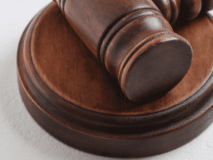
In the United States, civic structures preserve individual freedoms, including religion, speech, and even owning firearms. After all, people use firearms for various reasons, from self-defense to hunting to recreational activities like sport shooting.
As 45% of households in the U.S. own at least one firearm, experts claim it’s the most heavily armed civilian population globally. The constitution’s second amendment protects this right, stating: “A well regulated Militia, being necessary to the security of a free State, the right of the people to keep and bear Arms, shall not be infringed.”
However, what happens to this right if an individual has a criminal conviction? This article will answer this question with the help of Tracy Fornwalt, Managing Partner at Morr Range and Training Center. Read on to discover the process of restoring firearm rights.
How Can Someone From Pennsylvania Purchase a Gun?
The first step in purchasing a gun is discussing your preferences with the seller. They will usually ask questions to understand your firearm requirements, especially if it’s your first time buying one.
Afterward, the store representative will start taking some information and request to see your Pennsylvania ID or Pennsylvania driver’s license. In the state, these are the only acceptable IDs in a gun sale.
Next, you must fill out an eForm 4473 from the Bureau of Alcohol, Tobacco, Firearms, and Explosives (ATF). The law requires you to complete the paperwork and answer the questions truthfully. If you are at least 18 years old and interested in a rifle or other semi-automatic weapon, you must fill out an additional form from the U.S. Department of Justice.
These steps trigger a background check process to qualify that an individual is legally viable to own a gun in the state — which means you don’t have criminal charges to your name.
READ: How To Restore Gun Rights in Pennsylvania >>>
Which Criminal Charges Prevent Individuals From Owning a Gun in Pennsylvania?
Generally, federal firearm laws prohibit individuals convicted of felony or misdemeanor crimes punishable by at least two years in jail from getting a firearms license. Retailers will also not sell guns to people subject to court orders or those with serious mental conditions.
Also, the Pennsylvania law, subject to certain exceptions, will not grant people with a previous conviction of these crimes firearm ownership:
- Owning, using, building, repairing, or dealing “offensive weapons” such as machine guns, shotguns, and stun guns
- Murder, aggravated assault, or manslaughter involving a firearm
- Stalking, kidnapping, or rape
- Burglary or robbery
- Involvement in organized crime
- Possession of weapons while escaping a detention facility, including correctional institutions and mental hospitals
- Firearm possession on school property
- Luring children into motor vehicles
- Impersonating law enforcement officers
- Intimidating or retaliation against witnesses or victims
- Those convicted of drug offenses under the Controlled Substance Device Act.
Additionally, the law does not grant possession of firearms to these individuals:
- Fugitives
- People convicted of an offense under The Controlled Substance, Drug, Device, and Cosmetic Act
- People under active protection from an abuse order that specifies the relinquishment of firearms
- Mentally incompetent people or those involuntarily committed to a mental institution
- Illegal immigrants
Can a Felon Legally Own a Firearm?
Yes, a felon can achieve restoration of firearm rights in Pennsylvania. Getting gun rights back is possible, but only under specific legal circumstances. These are the only situations where the law grants these individuals possession of firearms:
- A pardoned conviction
- An expunged conviction
- A sealed conviction
- A restoration of firearm rights in the state where the felony offense or misdemeanor was committed
What Is a Criminal Pardon?
One way to restore an individual’s right to possess a firearm is to have their conviction pardoned, which only the Governor of Pennsylvania can grant for state-level crimes. Typically, the state’s Board of Pardons forwards these appeals to the Governor’s desk.
Note that this process is a complex one and involves a detailed investigation. For this reason, you will need a reliable firearm restoration attorney on your side.
The first ideal step is to file an application. Should the Board of Pardons accept your case, they may schedule an interview with a state parole agent. The agent will then review your case and report their findings to the Board of Pardons, who will decide whether to move your case forward or not.
If they feel restoring firearm rights is ideal, they will schedule a hearing. During this time, you can present character witnesses to the panel, and the board can ask you questions.
Afterward, board members should vote for or against your pardon. If you get at least three votes in your favor, your case moves forward to the Governor. Ultimately, the Governor can decide on granting your pardon or not.
While the process is tedious, a pardon is worth the effort. Apart from granting firearm ownership, it can also open employment, housing, and schooling possibilities for you.
Learn more about how to get a pardon in PA >>
What Is Expungement?
An expungement is a judge-ordered process that destroys all court and administrative records of a previous conviction. You can only opt for this option in specific cases, such as underage drinking convictions, summary offenses, or arrests that end in dismissal. Pennsylvania law does not grant expungement to misdemeanor crimes and felonies until they have been Pardoned by the Governor.
Learn more about expungements in PA >>
What Is a Sealed Conviction?
Pennsylvania law allows the “sealing” of particular nonviolent misdemeanors after ten years. As of 2019, courts automatically seal some records, including:
- Criminal arrests without conviction
- Nonviolent criminal convictions after ten years
- Misdemeanor offenses with a sentence of less than two years in prison (M2s and M3s).
To seal a conviction, there is a waiting period of ten years. During this time, you should not have additional arrests. While law enforcement personnel have access to sealed convictions, you don’t have to disclose them on firearm applications.
Learn More About Restoring Firearm Rights
If you have a previous conviction, you’ve probably discovered how it limits one of the most basic liberties in the Bill of Rights — the right to keep and bear arms. However, you shouldn’t let a problematic past keep you down. Keep in mind that not all misdemeanor crimes are irreversible.
There are ways to clear your name during the background check process when purchasing firearms, namely a criminal pardon or expungement. These processes may be tedious, but they are worth the effort. After all, they are the key to restoring firearm rights.
To navigate the process of restoring gun rights in Pennsylvania, it is crucial to have a thorough understanding of one’s record and legal options. Don’t let past convictions hinder your ability to exercise your Second Amendment rights—reach out to a record eraser today.




